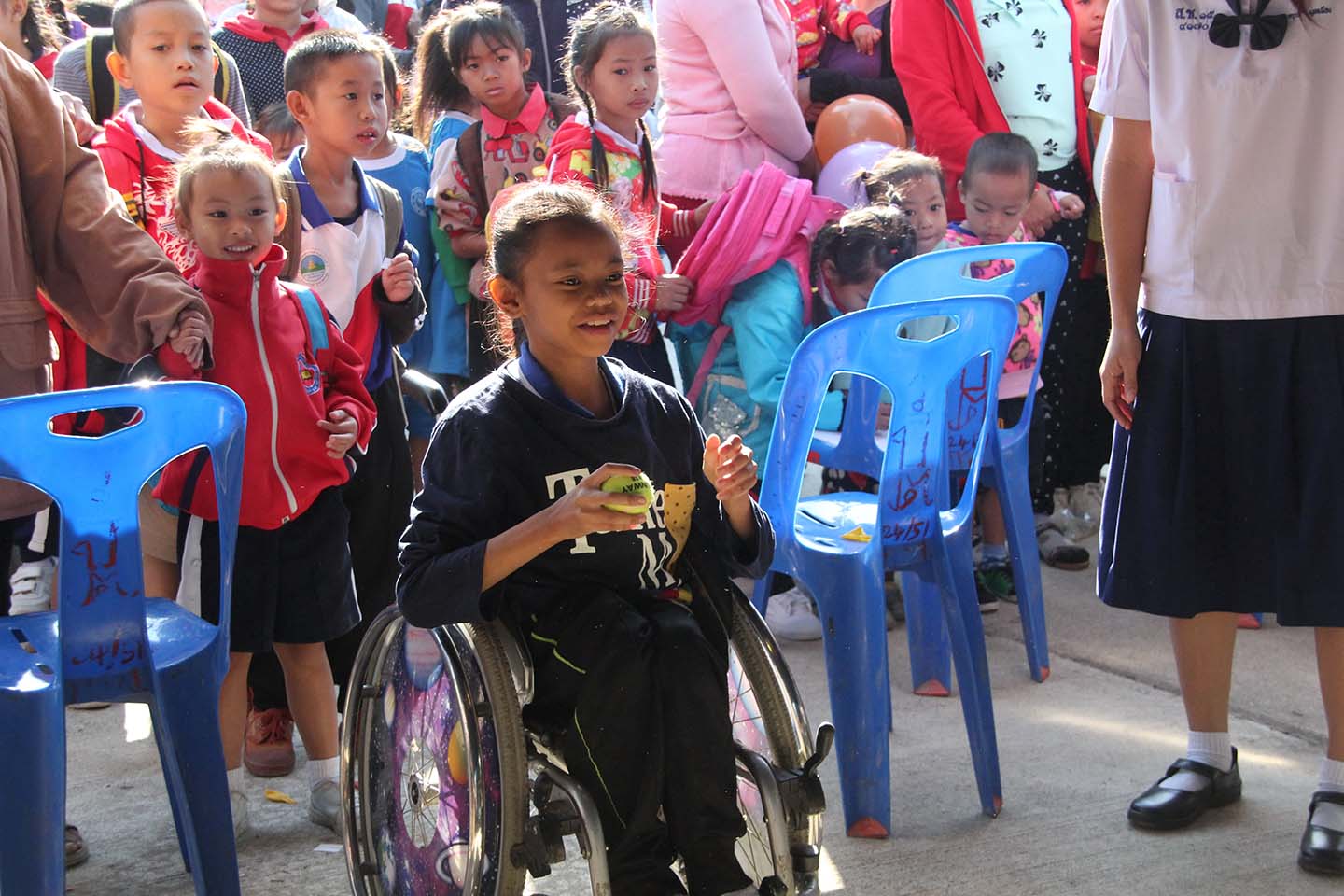
Reviewing professional development programs on inclusive teaching and learning
Research 3 Dec 2020 7 minute readThe Global Education Monitoring (GEM) Centre is conducting a review of in-service professional development programs that help teachers in low- and middle-income countries in the Asia-Pacific region build their competencies in inclusive education of children with disabilities.
One-third of children who are not in school in the Asia-Pacific region have a disability. The education systems in the region, especially in low- and middle-income countries, are witnessing a shift from educating children with disabilities in segregated settings to including them in mainstream schools. Teachers have a key role in this transformation: to ensure that every learner has access to quality education and opportunities to reach their full potential. By enhancing their capacity to educate children with disabilities, countries can catalyse their progress towards the goal of establishing an inclusive education system.
The scoping review aims to identify in-service professional learning programs assisting already practicing teachers with the inclusion of students with disabilities in low- and middle-income countries in the Asia-Pacific region. The study has been jointly funded by the Australian Council for Educational Research (ACER) and the Australian Government’s Department of Foreign Affairs and Trade (DFAT) through the Global Education Monitoring (GEM) Centre.
The investigation includes examining if the professional learning programs were designed for teachers in early childhood settings, mainstream or special schools, and whether they have reported teacher- or student-level outcomes. The review identifies, describes and categorises evidence on the professional development of teachers for inclusive education of children with disabilities from 41 economically developing countries listed by DFAT in the Asia-Pacific region. Around 692 records have been screened to date. The study includes interventions that:
- target teachers in early childhood settings or school settings (early childhood care and education services, Kindergarten-12 mainstream schools, and special education schools) working with children between the ages of 0 and 18 years
- support teachers in the provision of inclusive education of children with disabilities in mainstream schools
- belong to low- and middle-income countries in the Asia-Pacific region
- demonstrate improvements in teachers’ attitudes or practices and, in ideal situations, student learning.
The methodology of the review draws on the work proposed by Levac, Colquhoun and O'Brien in 2010, Joanna Briggs Institute, and the Campbell Collaboration’s Evidence and Gap Maps.
The results of the study – expected to be published in 2021 – will present the number of interventions in a particular educational setting (early childhood care and education services, Kindergarten-12 mainstream schools, and special education schools), the number of interventions in each country, the different forms of disabilities a professional development intervention supports, and the outcomes of the intervention.
An online evidence and gap map (EGM) will provide details about interventions categorised by educational setting, outcomes and forms of disabilities. The map will highlight the gaps in evidence, indicating the scope for further research and intervention in the area of professional development for including children with disabilities in mainstream schools. It will also provide links to tools and resources that have been identified as a part of the review. The resources can be used in their present condition or adapted by teachers and schools in the Asia-Pacific for improving the inclusion of children with disabilities in their own settings.
In addition, the evidence gathered through this study will support development partners when making investment decisions in low- and middle-income countries in the Asia-Pacific region. Australia has already made commitments towards improving teacher professional learning in inclusive education in the Indo-Pacific region and this review aims to help identify the key areas and education systems for program implementation.
This study could not be more timely as education stakeholders are working towards meeting the education targets laid out in the United Nations Sustainable Development Goals, including target 4.5 of Goal 4, which focuses on access to all levels of education for children with disabilities. As the pandemic threatens to reverse the advancements made in improving educational equity, this review will help development partners and policymakers to set their sights on specific areas of professional development intervention for inclusive education of children with disabilities in the post-COVID-19 world.
Further reading:
Read about ACER’s review of the effectiveness of early childhood care and intervention program.
Read about ACER’s thematic review on children with disabilities in the Asia-Pacific region.
References:
Modern, J., Joergensen, C., and Daniels, F. (2010). Disabilities and Education: Bridging the Implementation Gap. RESULTS UK and Department for International Development: London.